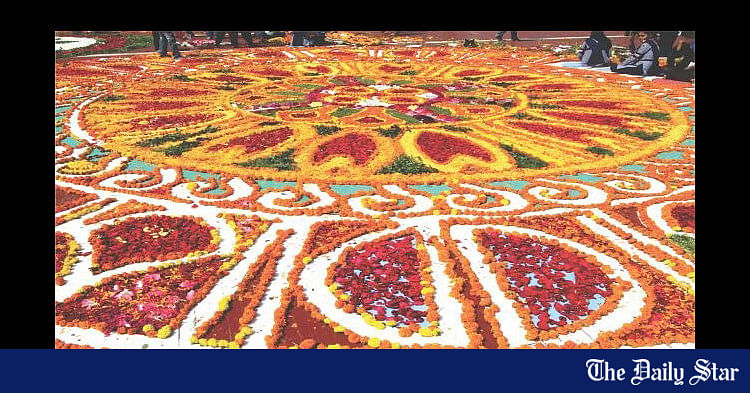On Cultural Diversity Day 2024, we must contemplate how we might transform into a culturally advanced society
To foster genuine cultural respect, we must change our perceptions and celebrate, rather than demean the diverse cultural expressions that enrich our nation. PHOTO: STAR
“>
To foster genuine cultural respect, we must change our perceptions and celebrate, rather than demean the diverse cultural expressions that enrich our nation. PHOTO: STAR
As a social science researcher deeply interested in cultural sociology, I have dedicated years to studying the diverse array of human rituals and celebrations in Bangladesh. I had an exceptionally impactful experience researching the distinctive Rash Mela festival in the Sundarbans. This festival serves as a dynamic celebration of harmony, attracting individuals from all religious and cultural backgrounds. Like Bangladesh, Rash Mela is a testament to the beauty and strength of cultural diversity.
On Cultural Diversity Day 2024, we must contemplate how we might transform into a culturally advanced society by honouring and celebrating the festivities of various religions and the diverse ethnic minorities that enrich our land.
Bangladesh is rich in natural beauty and cultural heritage. The Padma, Meghna, Jamuna, Surma, Sangu, Maini, Someswari, Seemang, and Chengi rivers flow across our beautiful country, mirroring the diverse quilt of our society. Our country’s landscape is embellished with picturesque charm, ranging from the green hills of Chittagong to the calm tea gardens of Sylhet. Additionally, we boast historical remnants such as the ruins of Mahasthangarh and the lively streets of Old Dhaka, where centuries-old traditions still thrive.
Throughout history, our land has been a melting pot of various ethnic groups, including the Garo, Hajong, Santal, Khasia, Manipuri, Chakma, Marma, Tripura, Munda, Koch, and Lusai communities. In March 2019, the Ministry of Cultural Affairs officially acknowledged 50 indigenous ethnic groups, highlighting our heritage’s diversity and cultural wealth. Moreover, Bangladesh boasts distinctive cultural legacies, such as the terracotta temples of Puthia and the Baul music, which have been passed on over several generations.
Nevertheless, numerous limitations hinder the complete manifestation of cultural diversity in Bangladesh. A significant issue is the excessive focus on religious fanaticism, which can suppress the rich mosaic of cultural practices and traditions that have historically defined our nation. This rigid focus not only marginalises minority religious groups but also threatens to erase unique cultural traditions that do not conform to the dominant religious norms. For example, specific indigenous festivals and cultural events encounter rejection or decreased involvement as a result of increasing religious intolerance. This lack of tolerance not only suppresses cultural diversity but also weakens the concepts of inclusivity and mutual respect, which are vital for a unified community.
Another troubling constraint is the prevalent mockery and disrespect toward different cultural practices. I have observed a tendency to ridicule ethnic minorities for their food habits and festivities. Such criticism and labelling perpetuate the deprivation and marginalisation of these communities. To foster genuine cultural respect, we must change our perceptions and celebrate, rather than demean the diverse cultural expressions that enrich our nation.
Economic issues and inadequate infrastructure also influence cultural diversity’s limits. Remote locations frequently lack the financing and facilities to support ethnic and cultural festivals. Moreover, globalisation and the rapid dissemination of popular culture can eclipse indigenous customs and languages, resulting in cultural uniformity.
To fully appreciate and honour our cultural diversity, we must oppose these extremist forces and foster an environment that appreciates and commemorates all faith celebrations and traditions. Respect for cultural diversity extends beyond mere acknowledgment; it entails proactive endeavours to safeguard and preserve the unique identities within our community. The pursuit of human dignity is of utmost importance in this endeavour. Safeguarding cultural rights, guaranteeing freedom of expression and freedom of the press, advocating for linguistic diversity, and providing equitable opportunities for arts, technology, and scientific education are essential for cultivating an atmosphere conducive to the flourishing of cultural diversity.
To include cultural diversity in our development, we can implement inclusive policies that acknowledge and endorse the cultural contributions made by all communities. Education curricula should incorporate inclusive cultural studies that acknowledge and appreciate our diverse roots, fostering a sense of mutual respect among pupils. When we respect and celebrate cultural diversity, we create a society that values productive dialogue and creativity; it helps to develop social bonds, cooperation, and communication. It enhances relationships between the government, non-governmental organisations, and civil society, facilitating peacebuilding and societal development.
As mentioned before, Rash Mela in the Sundarbans exemplifies how cultural celebrations can bridge divides and promote solidarity among individuals from diverse religious and cultural backgrounds. These events remind us that we share common values and aspirations regardless of our differences.
On the occasion of Cultural Diversity Day 2024, let us pledge to honour and commemorate the diverse cultures, faiths, and languages that contribute to the distinctiveness of Bangladesh. Let us construct a country that is not only culturally abundant but also socially cohesive and progressive. The actual cultural development of Bangladesh can be achieved by acknowledging and appreciating its diverse beauties.
Meherab Hossain is a young fellow of Oxfam, Bangladesh and a post-graduate student of sociology at Khulna University.
Views expressed in this article are the author’s own.
Follow The Daily Star Opinion on Facebook for the latest opinions, commentaries and analyses by experts and professionals. To contribute your article or letter to The Daily Star Opinion, see our guidelines for submission.




